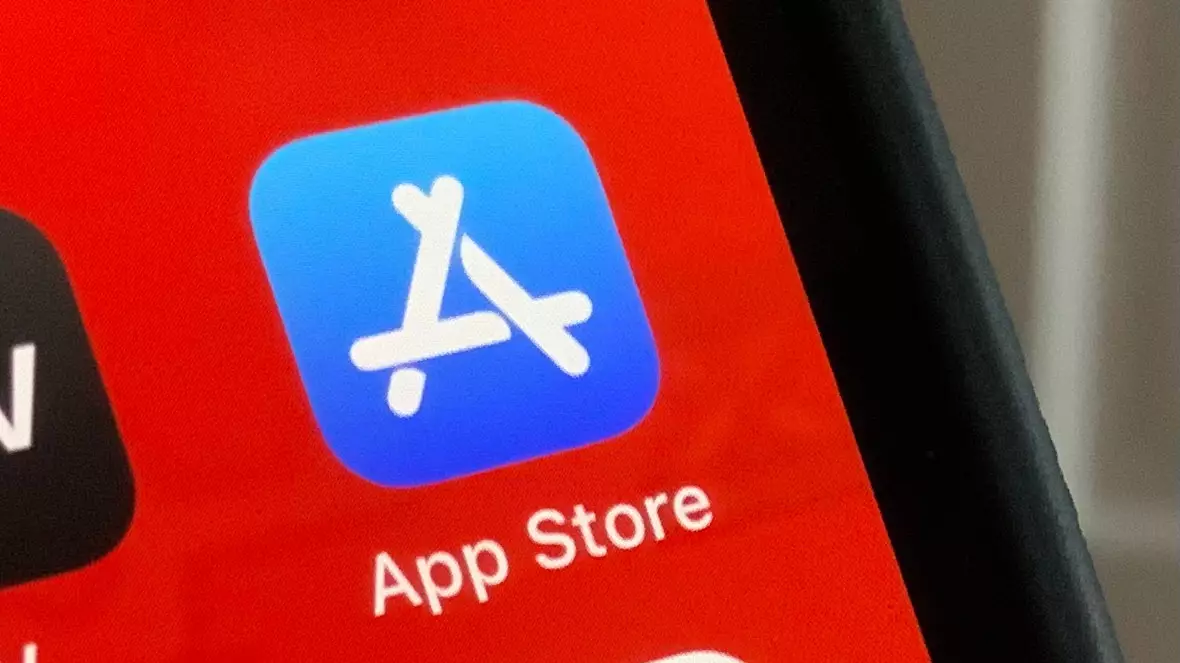Apple Inc. has long been synonymous with innovation and cutting-edge technology, but recent trends suggest a shift in the company’s financial fortunes. While sales of its flagship product, the iPhone, have shown signs of decline, Apple’s Services division is experiencing an unprecedented boom. This transformation presents an intriguing narrative about the company’s adaptability and the changing landscape of consumer engagement in the digital age.
In a recent earnings report, Apple announced that its Services division achieved a new revenue milestone of $26.3 billion for the quarter ending December 28, marking a robust 14% increase year-over-year. These figures are monumental not just for Apple but also for the broader tech ecosystem, indicating a significant consumer shift towards subscription-based services. Over the past year, Services has generated close to $100 billion, spotlighting the division’s growing importance to Apple’s overall business model.
The Services sector encompasses a range of offerings, including the App Store, iCloud, Apple Music, and Apple TV+. With over 1 billion subscriptions across various services, this division stands as a testament to Apple’s ability to diversify its revenue sources beyond hardware sales. The record highs in customer engagement noted by CEO Tim Cook further underscore the successful implementation of these services, as users are not only engaging with but also financially committing to Apple’s ecosystem in unprecedented numbers.
Apple’s continuous evolution in its service offerings plays a pivotal role in its sustained growth. For instance, appealing expansions in platforms such as Apple Arcade and Fitness+ illustrate the company’s commitment to enhancing the user experience. These platforms not only draw in existing customers but also have the potential to attract new ones, thereby contributing to the burgeoning service revenue.
Moreover, Apple’s introduction of features like “Tap to Pay” demonstrates its strategic foresight in embracing digital transformation. By expanding this functionality into 20 different markets, Apple is not merely focusing on consumer electronics but expanding its reach into digital transactions—a trend that is likely to become more integral as cashless payments gain universal acceptance.
Despite the stellar performance of its Services sector, Apple faces a cloud of uncertainty regarding regulatory scrutiny. Recent inquiries surrounding the app market and consumer rights have sparked conversations about the power dynamics in digital commerce. While Apple has emerged relatively unscathed from key antitrust lawsuits, the ongoing discussion about its App Store practices continues to loom large over the company’s future.
During the earnings call, some investors posed pointed questions about how new regulatory landscapes may affect Apple, hinting at the complexities that future adjustments could provoke. The concerns revolve around whether these changes might present new challenges or breathe fresh air into a more equitable digital marketplace. Notably, Apple’s CFO, Kevan Parekh, sidestepped these inquiries, focusing instead on the company’s stellar performance metrics. This suggests a strategic choice to emphasize strengths amid growing scrutiny, pointing to the confidence that Apple possesses in its Services division.
The legal battles concerning Apple’s App Store policies—especially those magnified by the Epic Games case—underline the ongoing tensions between technology giants and regulatory entities. While the Supreme Court’s choice not to hear an appeal in the Epic case bolstered Apple’s standing against monopolistic accusations, it simultaneously paved the way for developers seeking to challenge Apple’s operational practices. The ruling mandated that Apple allow app developers to direct users to external payment methods, an evolution that could impact competition in the app market.
While this legal backdrop may seem threatening, it also underscores a broader movement toward transparency and fairness in the digital space. Developers emboldened by such legal victories may intensify their pursuit of reforms, potentially reshaping not just Apple’s but the entire tech landscape’s operational dynamics.
While Apple’s Services division is basking in the glow of record revenues, the company isn’t entirely insulated from the challenges that confront it in both market dynamics and regulatory landscapes. The impressive growth trajectory signifies a shift in consumer habits and a successful pivot toward services, yet Apple must navigate these complexities with caution. The interplay between service growth and regulatory scrutiny will determine whether the tech giant can sustain its current trajectory or if it needs to recalibrate its approach in the rapidly evolving digital marketplace. As Apple forges ahead, its evolving narrative stands as a poignant reminder of resilience in the face of shifting tides.

